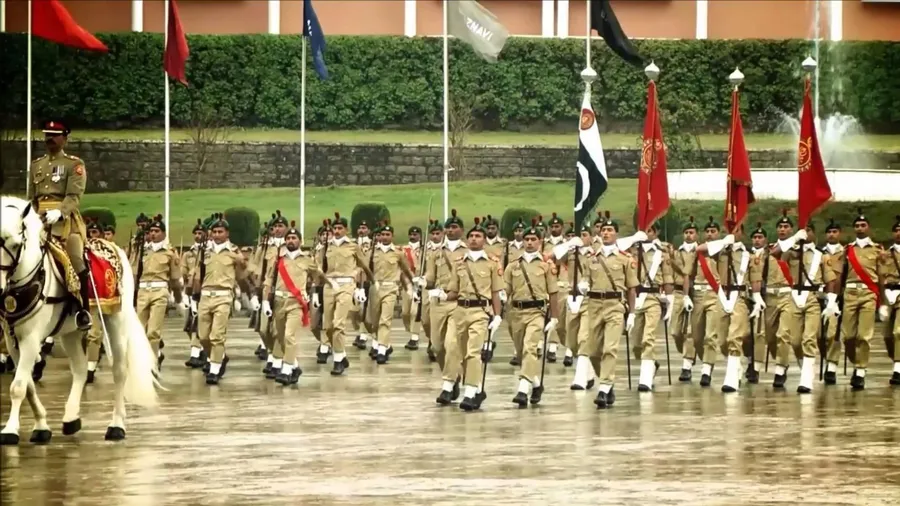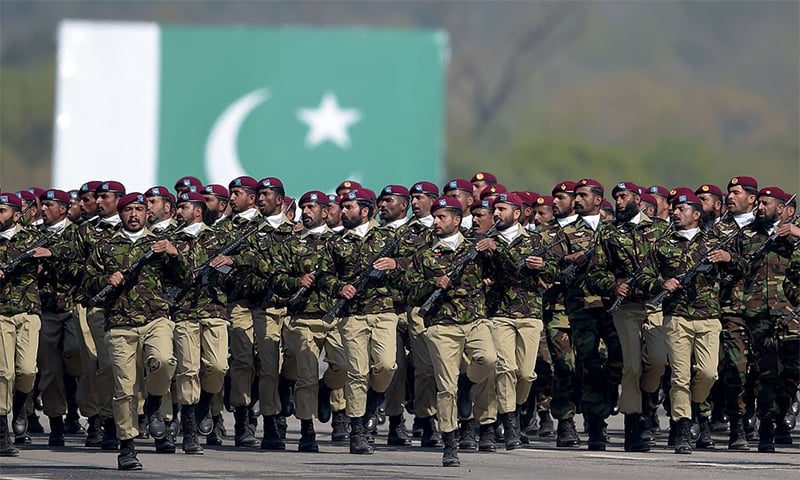Armed Forces Structure and Role
Military and Paramilitary in Pakistan; a country with a rich history and strategic significance, relies heavily on its Armed forces for national security and stability. These forces play a crucial role in defense, internal security, and disaster response. This blog will delve into the structure, roles, and significance of the Military and Paramilitary in Pakistan.
Overview of Pakistan’s Defense Forces
Pakistan’s defense apparatus is composed of a well-structured military and several paramilitary organizations. These entities work together to ensure the country’s sovereignty, maintain internal peace, and provide assistance during emergencies.
The Pakistan Armed Forces
Pakistan Army
The Pakistan Army is the largest branch of the country’s armed forces, responsible for land-based military operations. It is renowned for its discipline, training, and operational capabilities. The army is subdivided into various corps, including infantry, armored, artillery, and engineering units.
Pakistan Navy
The Pakistan Navy safeguards the country’s maritime interests and maintains the security of its sea routes. It comprises several components, including surface ships, submarines, naval aviation, and special forces.
Pakistan Air Force (PAF)
The Pakistan Air Force (PAF) is tasked with defending Pakistani airspace and providing aerial support to ground forces. The PAF operates a fleet of fighter jets, transport aircraft, and surveillance drones, alongside an elite group of pilots and ground crew.
∴ Paramilitary Forces in Pakistan
Frontier Corps (FC)
The Frontier Corps is a paramilitary force stationed along the western borders of Pakistan. It plays a pivotal role in border security, counter-insurgency, and maintaining law and order in the provinces of Khyber Pakhtunkhwa and Baluchistan.
Pakistan Rangers
The Pakistan Rangers are primarily responsible for guarding the eastern border with India. They also assist in internal security operations and perform duties related to law enforcement in urban areas.
Maritime Security Agency (MSA)
The Maritime Security Agency is tasked with enforcing maritime law, protecting Pakistan’s territorial waters, and conducting search and rescue operations. It works in conjunction with the Pakistan Navy to ensure maritime security.
Gilgit-Baltistan Scouts
The Gilgit-Baltistan Scouts operate in the northern regions of Pakistan. They are responsible for maintaining security in the rugged and challenging terrains of Gilgit-Baltistan, performing border patrols, and supporting the army in military operations.
Roles and Responsibilities
Defense and Security
The primary role of the Military and Paramilitary in Pakistan is to defend the country from external threats and ensure national security. This includes safeguarding borders, preventing invasions, and conducting strategic operations.
Counter-Terrorism Operations
Both military and paramilitary forces are actively involved in counter-terrorism operations. These operations aim to neutralize terrorist threats, dismantle militant networks, and restore peace in conflict-prone areas.
Disaster Response and Relief
In addition to defense duties, these forces play a crucial role in disaster response and relief operations. Whether it’s natural disasters like earthquakes and floods or man-made crises, they provide essential aid and support to affected populations.
Training and Development
Military Academies
Pakistan’s military academies, such as the Pakistan Military Academy (PMA) and Pakistan Naval Academy; are renowned for their rigorous training programs. They produce highly skilled and disciplined officers who lead the armed forces with distinction.
Specialized Training
Specialized training is provided to units like the Special Services Group (SSG) and Special Services Wing (SSW) of the Pakistan Army and Air Force, respectively. These units undergo intense training in unconventional warfare, counter-terrorism, and special operations.
Challenges and Future Outlook
Security Challenges
Pakistan faces several security challenges, including regional tensions, internal insurgencies, and the threat of terrorism. The military and paramilitary in Pakistan continually adapt to address these evolving threats.
Modernization Efforts
To maintain a strategic edge, Pakistan is investing in the modernization of its armed forces. This includes acquiring advanced weaponry, upgrading equipment, and enhancing cyber capabilities.
Conclusion
Military and Paramilitary in Pakistan play a critical role in maintaining national security and stability. Their dedication, training, and operational capabilities ensure the country’s defense against external threats and support in times of crisis. Understanding their structure and functions provides insight into Pakistan’s strategic strength and preparedness.
Stay informed about Pakistan’s defense and security dynamics. Follow reputable sources, engage in discussions, and support the brave men and women who protect the nation. Explore further readings to deepen your understanding of the country’s strategic landscape.
FAQs
Q- What are the main branches of the Pakistan Armed Forces?
The main branches are the Pakistan Army, Pakistan Navy, and Pakistan Air Force.
Q- What roles do paramilitary forces play in Pakistan?
Paramilitary forces handle border security, internal law enforcement, counter-insurgency, and disaster response.
Q- How does the Pakistan Army contribute to national security?
The Pakistan Army defends land borders, conducts strategic operations, and supports counter-terrorism efforts.
Q- What is the Frontier Corps responsible for?
The Frontier Corps is responsible for border security and maintaining law and order in Khyber Pakhtunkhwa and Baluchistan.
Q- How are military personnel trained in Pakistan?
Military personnel are trained at prestigious academies like the Pakistan Military Academy and through specialized training programs.
Q- What challenges do Pakistan’s defense forces face?
They face challenges such as regional tensions, internal insurgencies, and terrorism.
Learn more about Pakistan’s military and paramilitary forces >>>> GlobalSecurity.org











